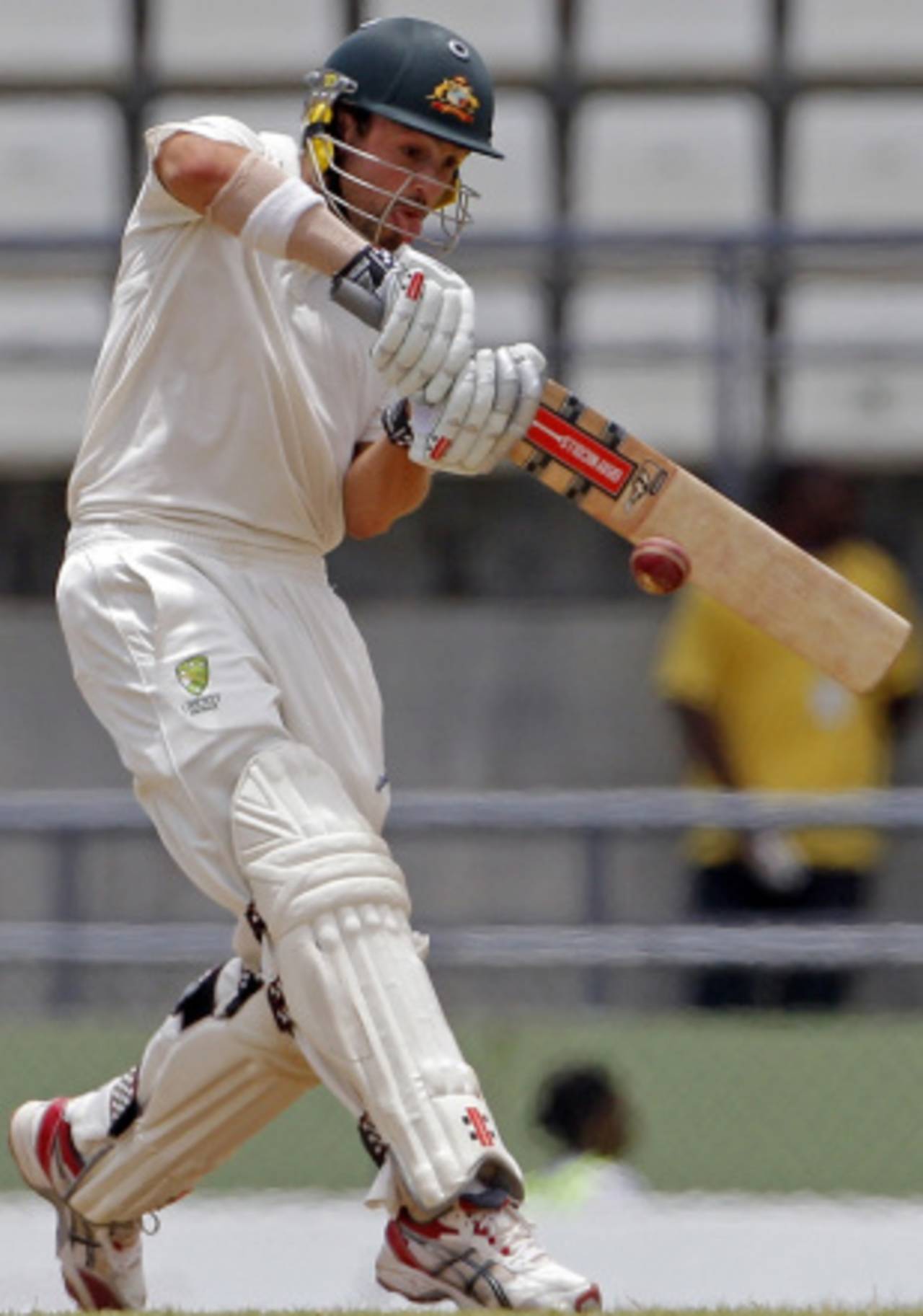Emerging batsmen must earn their stripes
George Bailey and Ed Cowan could be considered unlucky to have missed out on Cricket Australia contracts this year. But if they're good enough, it won't matter.
Brydon Coverdale
Jun 22, 2012, 4:33 PM

Ed Cowan has lost his Cricket Australia contract • Associated Press
The purpose of a central contract system is right there in the name. Central. The aim is to put on retainer the players expected to be central to the team's performances in the coming year. George Bailey and Ed Cowan could come to fit that description this season. If they do, they will be rewarded. They will also provide Australia with much-needed batting depth.
Neither man should view being left off Cricket Australia's contract list, which this year featured only six batsmen, as an insult. They are both new to international level. They may become long-term prospects. They may drift back to state cricket, as plenty have before them. Their fate, like that of all of Australia's young batsmen, is in their own hands. They can't ask fairer than that.
Simon Katich might disagree after his omission last year, but there is one undeniable truth about Cricket Australia's contract system. Eventually, the right players always earn a deal. Sometimes the wrong ones do as well. That is another matter.
But the right players, those who become key performers for Australia during a contract year, will be upgraded to a national contract. It is built into the system. Call it natural selection. Last year, Katich was not in Australia's plans, so there was no point signing him up. Others, Matthew Wade and Nathan Lyon for example, became regular internationals and were contracted mid-year. Simple.
To be upgraded to a national contract from outside the initial group, a player must accumulate 12 points based on a system where each Test appearance is worth five, an ODI is worth two and a T20 international earns one. Bailey is the country's Twenty20 captain, but has still only played nine times for Australia. If he can make himself a regular ODI player on top of his T20 duties, he will earn a contract.
Cowan has played Australia's past seven Tests. He has shown promise, but that is all. He will need more than the odd half-century and an average of 29 to make himself a viable long-term Test prospect. But if he is good enough to hold his place for three more Tests, he will be upgraded.
There are others in the same situation, notably Clint McKay, Daniel Christian and Peter Forrest. They are all likely to play enough games to be upgraded. But why not make them earn it? In the past, too many contracts have been awarded prematurely. Too many contracts have been awarded full stop.
Only 17 men have been handed deals for the coming year, down from 25. A less bloated list is no bad thing. England awarded only 13 central contracts last year, and their criteria for a mid-year upgrade is even tougher. They seem to be coping.
Now, players won't just make up the numbers. Remember Cullen Bailey, the young legspinner who was contracted in 2007? He did not play an international match that year, and hasn't come within cooee since. Adam Voges was handed a contract in 2007, 2008 and 2010, for the grand total of 15 ODIs and four T20s.
Not that this year's 17-man squad is perfect. Mitchell Johnson can count himself extremely fortunate to have been included. Presumably the selectors view him as a first-choice player in the ODI and T20 sides, for his Test bowling in recent times has been about as intimidating as his Movember moustache.
The retention of Brad Haddin is an indication that the selectors either believe he is still the No.1 wicketkeeper ahead of Matthew Wade or are yet to make up their minds. After a disappointing year in both Test and one-day cricket, there would have been justification for leaving Haddin off the list.
Clearly, Ricky Ponting is not going anywhere in a hurry. His outstanding series against India bought him more time in the Test side, although a poor tour of the West Indies followed. The selectors want him around and he wants to be around. He is likely to be part of the Test side for at least another summer.
Ponting is one of only six specialist batsmen given contracts this year, along with Michael Clarke, Shane Watson, David Warner, Michael Hussey and David Hussey. There is no reason the split between bowlers and batsmen should be more even - it is a contract list, not a starting XI - but the imbalance does indicate that John Inverarity and his fellow selectors want more from the wider batting group.
That is far from ideal a year out from the Ashes, but nor is it a surprise. This is a team that in the past year has relied on four men - Clarke, Ponting, Warner and Michael Hussey - for more than half its Test runs. It is a side that was bowled out for 47 in a Test match in November.
Young batsmen like Usman Khawaja, Shaun Marsh and Phillip Hughes have let Test opportunities slip over the past year, while Cowan, Bailey and Forrest are still proving themselves. There are others showing promise at state level - Joe Burns, Liam Davis and Rob Quiney, to name a few - and it is up to whoever is given a chance to grab it.
Australia's young bowlers have been doing that over the past 12 months. It's no wonder there are seven fast men and two spinners in the contract list. This year it's time for the batsmen to make themselves indispensable. Cowan and Bailey would be a good start.
Brydon Coverdale is an assistant editor at ESPNcricinfo. He tweets here